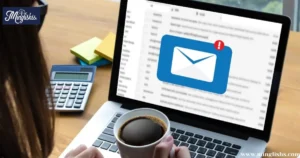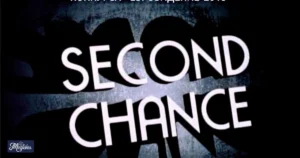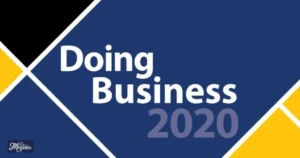“Courteous alternatives to inquire about someone’s availability or completion of a task.”
When following up on a task or request, it’s important to frame your inquiry in a polite and respectful manner. Asking “Did you get a chance?” is a common way to check in, but using more varied and refined expressions can make your communication more professional and considerate. This is especially true in formal or sensitive contexts where showing respect for the recipient’s time and priorities is crucial.
In this blog, we will explore 25 polite ways to ask if someone has had the opportunity to complete a task or review information. Each phrase will be accompanied by scenarios and subject explanations, followed by additional tips to help you choose the most appropriate expression. These alternatives will enhance your communication by making it more thoughtful and respectful.
25 Polite Ways to Say “Did You Get a Chance?”
1. “Have you had the opportunity to review this yet?”
Scenario: Laura follows up with a colleague about a report she sent for review.
Subject Explanation: This phrase inquires about the opportunity to review something.
Additional Tip: Ideal for formal contexts where a review is pending.
2. “When you have a moment, could you let me know about this?”
Scenario: John asks a client to update him on the status of a project.
Subject Explanation: This phrase politely requests an update when the recipient has time.
Additional Tip: Suitable for situations where timing is flexible.
3. “If you’ve had a chance, could you please check this?”
Scenario: Emily asks a team member if they’ve had the opportunity to check some details.
Subject Explanation: This phrase requests a check if time permits.
Additional Tip: Use this for non-urgent requests where the recipient’s time is considered.
4. “Have you been able to address this matter yet?”
Scenario: Michael inquires about whether a colleague has resolved an issue.
Subject Explanation: This phrase asks if the matter has been addressed.
Additional Tip: Ideal for follow-ups on tasks or issues.
5. “When convenient, could you provide an update on this?”

Scenario: Sarah requests an update from a client when they have time.
Subject Explanation: This phrase seeks an update at the recipient’s convenience.
Additional Tip: Suitable for requests where timing is flexible.
6. “Could you let me know if you’ve had time to review this?”
Scenario: Daniel asks a supervisor if they’ve reviewed a report.
Subject Explanation: This phrase requests information about the review status.
Additional Tip: Use this for formal follow-ups on reviews.
7. “If you’ve had a chance to look at this, could you please inform me?”
Scenario: Rachel asks a colleague to inform her about their review of a document.
Subject Explanation: This phrase requests notification if a review has been completed.
Additional Tip: Ideal for situations where you need confirmation of review.
8. “Whenever you’re able, could you please update me on this?”
Scenario: James requests an update from a client about a pending issue.
Subject Explanation: This phrase asks for an update when the recipient is available.
Additional Tip: Use this for flexible timing situations.
9. “Have you had the chance to take a look at this yet?”
Scenario: Nicole follows up with a team member about reviewing a proposal.
Subject Explanation: This phrase inquires about the opportunity to review something.
Additional Tip: Suitable for informal or semi-formal follow-ups.
10. “Please let me know when you’ve had a chance to review this.”
Scenario: Laura asks a colleague to notify her after reviewing a document.
Subject Explanation: This phrase requests notification post-review.
Additional Tip: Use this for requests that need confirmation after review.
Polite Ways to Say “Please Be on Time”
11. “Could you inform me if you’ve been able to address this?”
Scenario: Michael follows up on a task to see if it has been addressed.
Subject Explanation: This phrase asks for information about task completion.
Additional Tip: Ideal for follow-ups on task status.
12. “When you get a chance, could you please check on this for me?”
Scenario: Emily requests a check on a detail when the recipient has time.
Subject Explanation: This phrase asks for a check when convenient.
Additional Tip: Suitable for non-urgent checks.
13. “If you’ve had time to review this, could you let me know?”
Scenario: James inquires about whether a colleague has reviewed a document.
Subject Explanation: This phrase seeks notification if review has occurred.
Additional Tip: Use this for formal or semi-formal follow-ups.
14. “Could you please let me know if you’ve had an opportunity to look at this?”
Scenario: Rachel asks a client to inform her about their review of a proposal.
Subject Explanation: This phrase requests information on the opportunity to review.
Additional Tip: Ideal for formal requests requiring confirmation.
15. “When you’re able, could you check this and get back to me?”
Scenario: Daniel requests a follow-up on a document review.
Subject Explanation: This phrase asks for a check and response when convenient.
Additional Tip: Use this for follow-ups that require both checking and responding.
16. “Please let me know if you’ve had a chance to address this issue.”
Scenario: Nicole follows up on an issue to see if it has been resolved.
Subject Explanation: This phrase seeks confirmation of issue resolution.
Additional Tip: Suitable for tasks or issues needing confirmation.
17. “If you’re able to, could you please review this and update me?”

Scenario: Laura asks a colleague to review and provide an update on a report.
Subject Explanation: This phrase requests a review and update if possible.
Additional Tip: Ideal for follow-ups requiring both review and update.
18. “Could you provide an update if you’ve had the opportunity to review this?”
Scenario: Michael requests an update on a document review from a team member.
Subject Explanation: This phrase asks for an update if the review has been completed.
Additional Tip: Use this for formal requests needing an update post-review.
19. “When convenient, could you check this and let me know your thoughts?”
Scenario: Emily asks for feedback on a document when the recipient has time.
Subject Explanation: This phrase requests a check and feedback at the recipient’s convenience.
Additional Tip: Suitable for feedback requests.
20. “If you’ve had a chance to address this, could you please update me?”
Scenario: Rachel inquires about progress on a task or issue.
Subject Explanation: This phrase seeks an update if the task has been addressed.
Additional Tip: Use this for updates on task completion.
21. “Please let me know when you’ve had a chance to review the attached.”
Scenario: James follows up on an attachment sent for review.
Subject Explanation: This phrase asks for notification after reviewing an attachment.
Additional Tip: Ideal for follow-ups on important attachments.
22. “Could you kindly inform me if you’ve had an opportunity to check this?”
Scenario: Nicole requests information about the review status of a document.
Subject Explanation: This phrase politely requests notification about the review opportunity.
Additional Tip: Suitable for formal communications.
23. “If you’re able to review this, could you let me know your findings?”
Scenario: Laura asks for findings after a review of a document.
Subject Explanation: This phrase requests information on the results of a review.
Additional Tip: Use this for requesting detailed feedback.
24. “When you have a moment, could you please check on the status of this?”
Scenario: Michael asks a team member to provide a status update when they have time.
Subject Explanation: This phrase requests a status check at the recipient’s convenience.
Additional Tip: Suitable for status updates.
25. “Could you please inform me if you’ve had the chance to review the details?”
Scenario: Emily follows up on reviewing details in a report.
Subject Explanation: This phrase asks for information on the opportunity to review details.
Additional Tip: Ideal for formal requests needing confirmation of review.
Pros and Cons of Alternatives
| Pros | Cons |
| Variety: Offers numerous polite expressions for follow-ups. | Complexity: Some phrases may seem overly formal for casual contexts. |
| Clarity: Provides clear and respectful ways to request updates. | Length: Longer phrases might be less efficient for brief inquiries. |
| Professionalism: Enhances the formality and politeness of requests. | Context Fit: Some phrases may not suit every business or informal setting. |
| Empathy: Demonstrates consideration and respect for the recipient’s time. | Overuse Risk: Frequent use of formal language might seem insincere or robotic. |
| Flexibility: Allows for customization based on context and recipient. | Repetition: Repeated use of similar phrases might reduce their impact. |
Conclusion
Using polite and varied alternatives to “Did you get a chance?” can significantly improve your communication by reflecting professionalism and respect. By selecting the most appropriate phrase based on the context and recipient, you can ensure your requests are received positively and encourage timely responses.
Incorporating these refined expressions into your communication practices will contribute to more courteous and effective interactions.

I’m Jane Austen, a language expert at Minglishs, dedicated to helping learners master English through engaging and accessible content. My passion for literature and teaching drives me to make language learning both enjoyable and effective.










